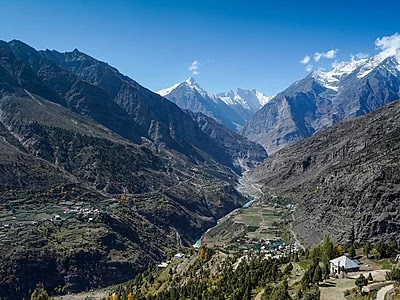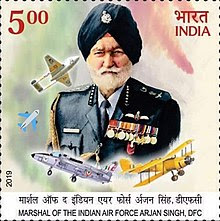Lahaul and Spiti is a district of the northern Indian state of Himachal Pradesh. Located in the Himalayas, it was formed by the merger of the districts of Lahaul and Spiti in 1960. At the 2011 census of India, it was the least densely populated district of India. This photograph shows the valley of the Bhaga River in Lahaul, with the villages of Kardang (left) and Biling (right) visible on opposite sides of the river, near the district headquarters of Kyelang.
Photograph credit: Timothy A. Gonsalves
Link : https://en.wikipedia.org/wiki/Wikipedia:Picture_of_the_day/January_2025





.webp)










